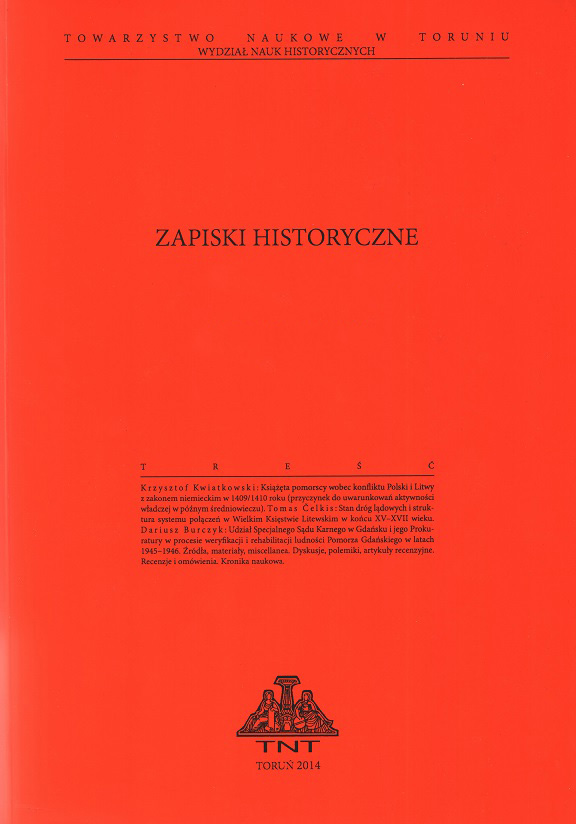
We kindly inform you that, as long as the subject affiliation of our 300.000+ articles is in progress, you might get unsufficient or no results on your third level or second level search. In this case, please broaden your search criteria.

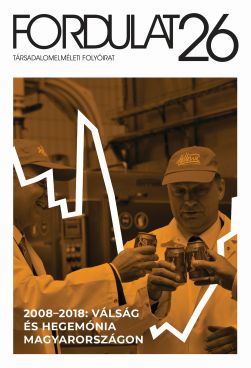
In my paper, I look at the gender regime and “women’s policy” after 2008 in the context of the history of the integration of female formal and informal labour into society. I show that the productive and reproductive labour performed by women has integrated into society in different ways in different historical periods, according to way in which Hungary integrated into the world system. I argue that when looking at the gender regime and “women’s policy” after 2008, in addition to the rearrangement directly caused by the crisis, we also need to consider the demographic downturn that has been continuous from the 1950s, the abortion discourse attached to this, as well as the downturn of the world economy from the 1970s. We need to consider the way in which Hungary formally reintegrated into the world system in a dependent, semi-peripheral position during the regime change.
More...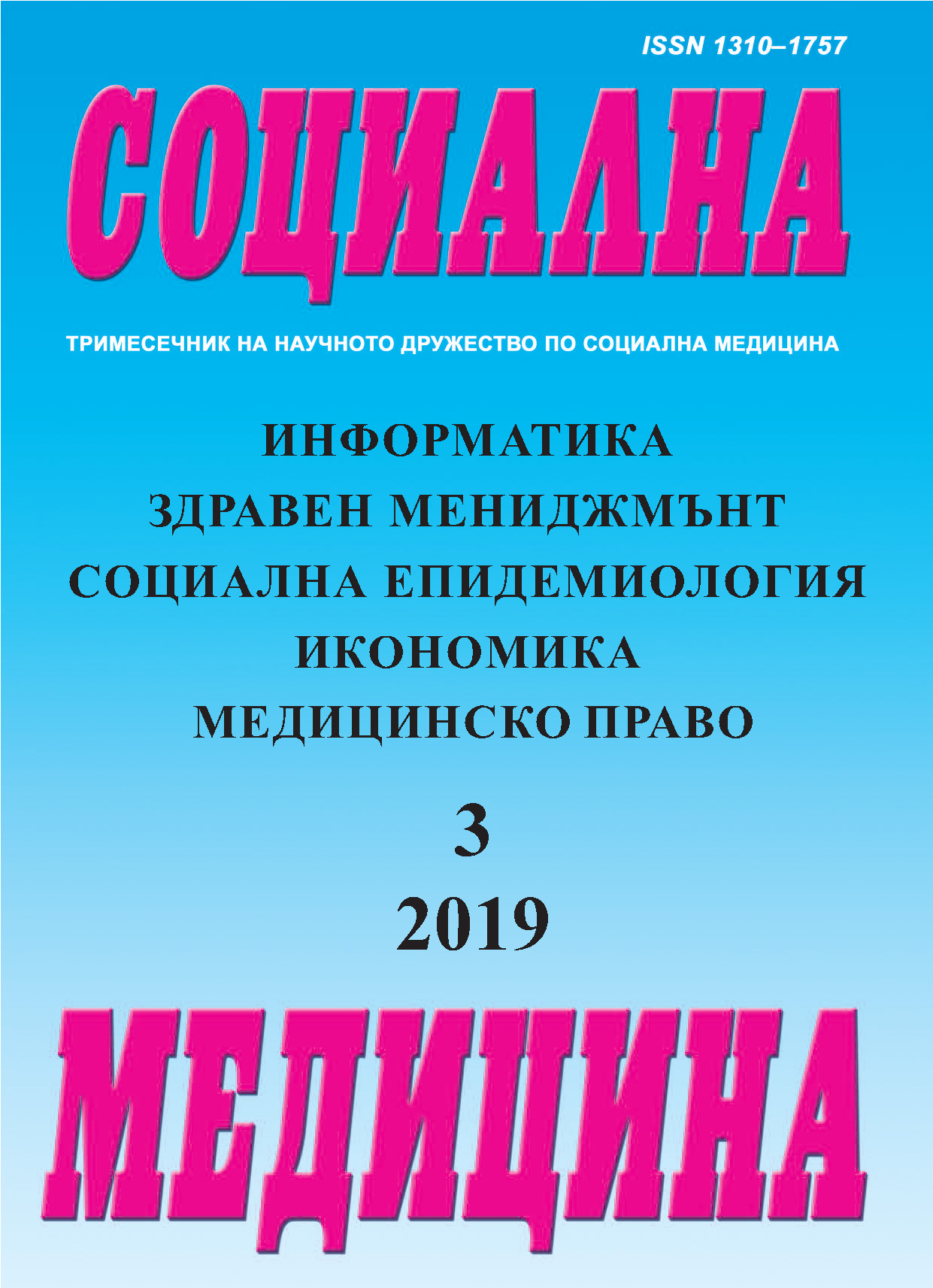
In this material an attempt is made to look from the side, both in the creation and development of the Ambulatory file in our country in historical terms - since 1950, and for management, stagnation or inaction in the maintenance of the personal health passport. The ambulatory file and the records in it, the archiving and the document circulation of this important document reflect in dynamics the health needs of the individual and the health care provided for him. The ambulatory file as a whole gives an idea of the professional and managerial culture. In addition, it is a source of important medical records used as a primary source for important medical, statistical and management information.
More...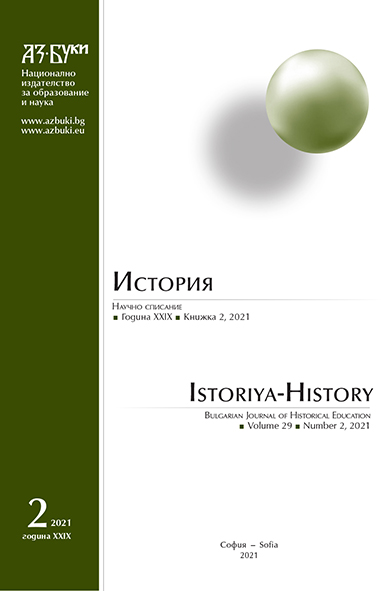
This article aims to explain how the textbooks for the subject History and Civilizations in the 5th grade influence the formation of the initial economic literacy of the school students. By studying prehistory and the ancient world they learn about the economic life in the past and acquire some important economic concepts. This article examines, analyzes and compares the textbooks with regard to the above purpose. Good examples in the relevant textbooks are shown, which to the biggest extent contribute to the formation of the school students' initial economic literacy. It is an important part of the formation of their civic culture. The topic about young people's knowledge of economic development and their economic culture is important for their successful future participation in the economic life of the present-day Bulgarian society.
More...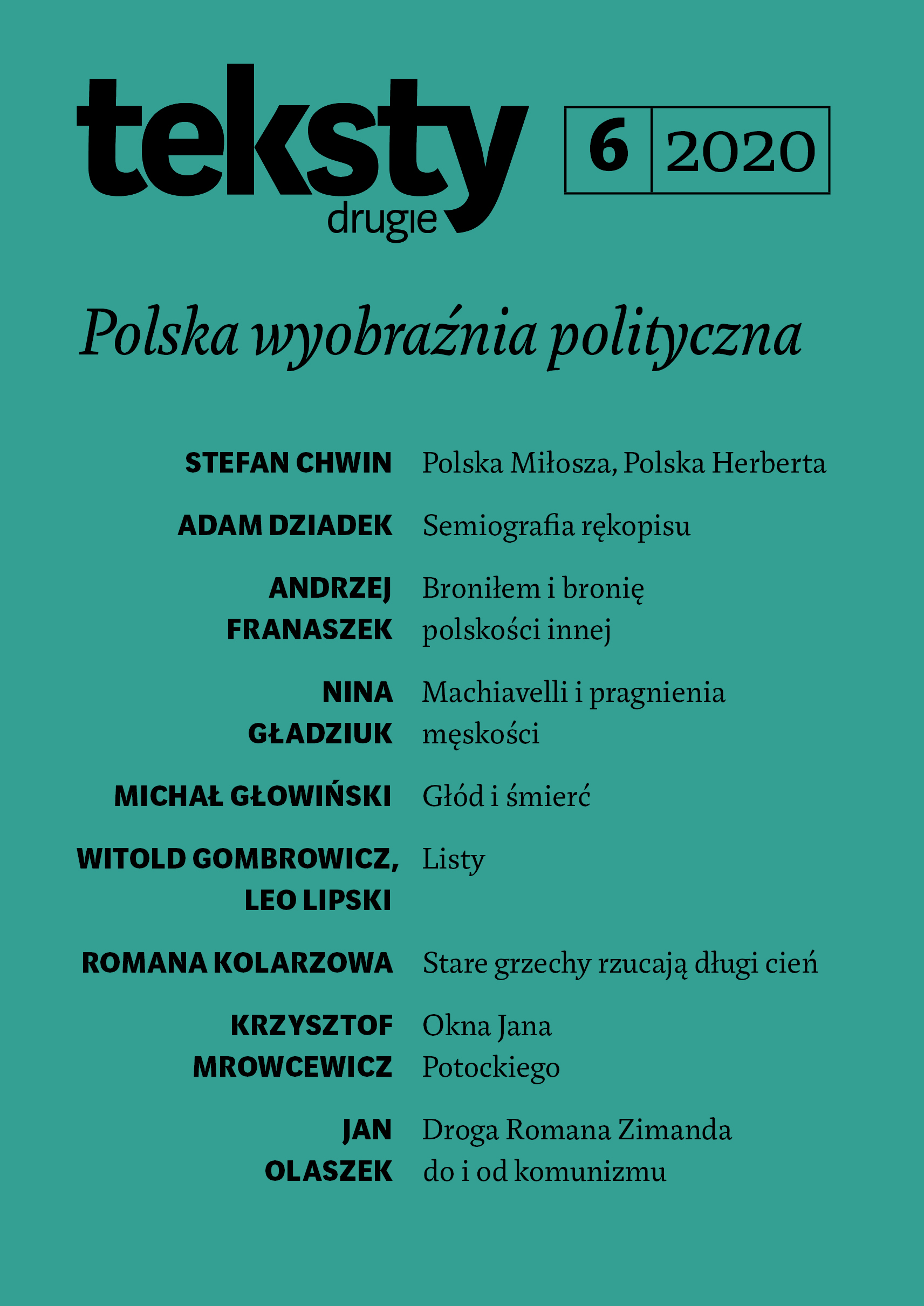
Olaszek outlines the development of the political engagement of RomanZimand, a journalist, sociologist and literary scholar. Zimand, a communist at first, became a revisionist and later an oppositionist with starkly anto-Communist views. Olaszek provides a rationale for Zimand’s decision and his later stance on his own past, arguingthat Zimand was remarkably radical compared to people with comparable biographies and highly critical of his own life choices. This article is a contribution to the debate on the Polish intelligentsia’s attitude towards communism.
More...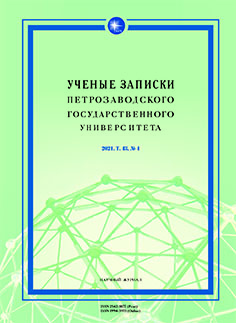
The article analyzes clerics’ participation in Swedish diplomatic missions to Russia in the late Middle Ages and the early modern period. It is demonstrated that until the 1530s clerics (mostly canons) were regularly included in Swedish embassies to Russia. It was in keeping with the general level of diplomacy in Sweden, the rulers of which often gave important diplomatic assignments to bishops. But the Swedish embassies to Russia, by contrast, started to include bishops only in the second half of the sixteenth century, when this practice had almost disappeared in other foreign policy directions. It is assumed that the reason for this might have been the attempt to utilize a person’s high clerical status as an additional symbolic resource in difficult diplomatic situations (primarily in the cases of the missions of Laurentius Petri and Michael Agricola, as well as that of Paul Juusten). It is also confirmed that during the whole period under consideration most (although not all) clerics carrying out diplomatic missions to Russia were from Finland.
More...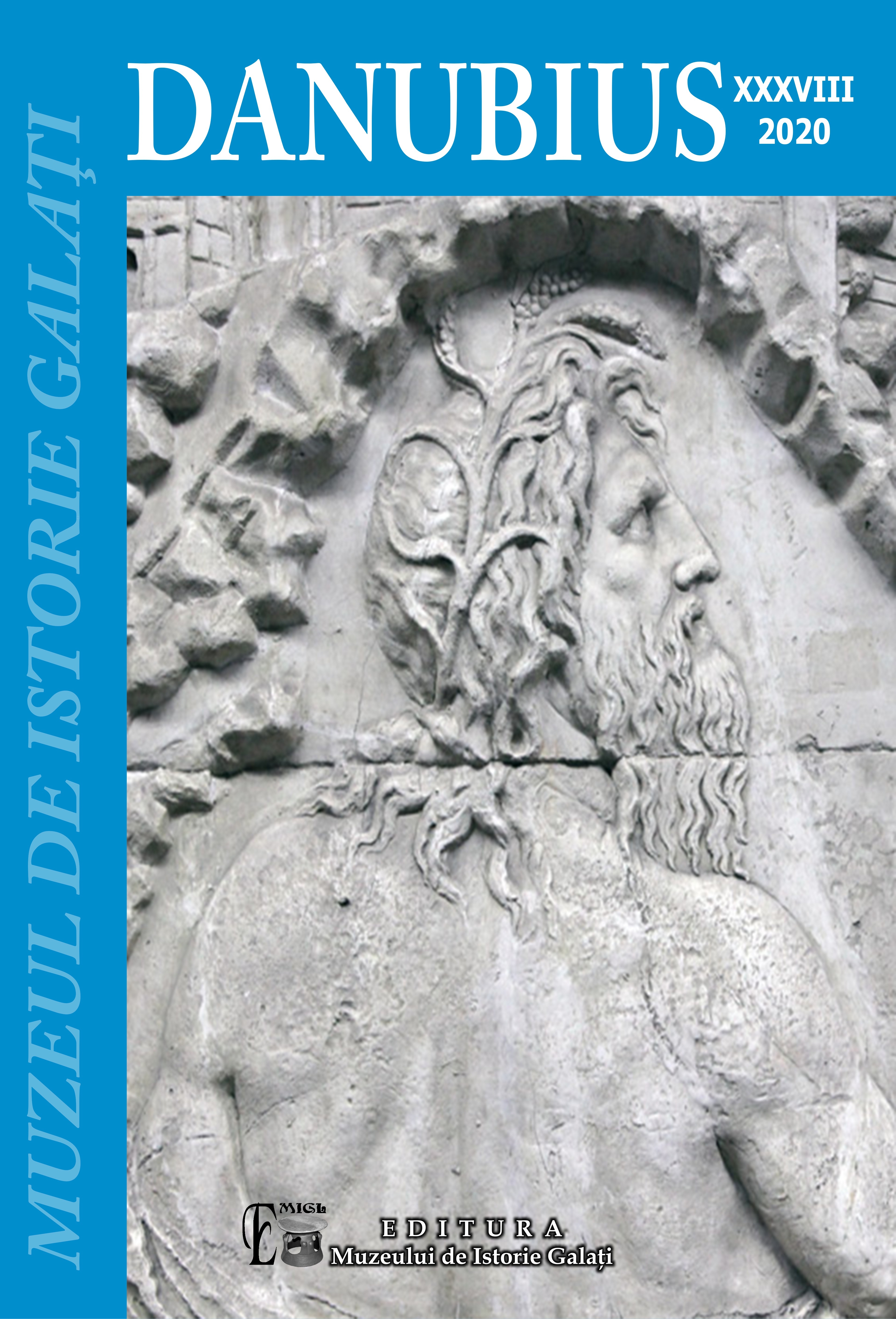
The man from the traditional Romanian communities imagined the Evil through the phenomenological prism of Christian morality. Good and Evil, in various forms and aspects, are in constant confrontation. Man, infinitesimal component of the deity, takes an obligatory, (un)consciously, (un)assumed part in this conflict. Most of the time, such confrontations are centered around some noteworthy popular heroes. In these cultural products (fairytales, legends, ballads, etc.), the heroes fight evil, whatever/whoever it may be, in order to restore the moral balance, the harmony disturbed by the manifestation of evil, and, ultimately, the conceptual Good. The Romanian fantastic fairy tale is, in this aspect, perhaps the most fertile epic field of representation, valorization and symbolization of this eternal struggle between Good and Evil, with an obvious formative function. I don`t think there is any fairy tale that doesn’t have, as a synthetically-narrative core, such a conflict. Most often, this subject became the theme of the action and the narrative itself. This study deals with the evil beings which are present in the the fantastic fairy tale epic. For an easy comprehension of the epistemic dimensions given to evil by traditional mentality, both generator and consumer of fantastic fairytale, I have chosen to divide these categories of evil beings according to their area of manifestation. Every category emphasizes both the human appetite for evil, as well as the cathartic discharge given by one`s struggle with such evil tendencies. We have, therefore, anthropophagous, forestry, pandemic, demonic (in the Christian sense) fantastic beings, sometimes with important physical descriptions of them.
More...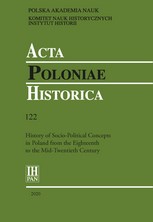
This article seeks to answer the question of whether the local conditions or determinants influence the socio-political language. Within the context of the nationwide discourse in the nineteenth-century Kingdom of Poland, an analysis follows how the concept of ‘intelligentsia’ functioned in the local press from the industrial city of Łódź. A source analysis leads to the conclusion that in the specific circumstances, of which the social mix was a constituent, certain notions of a defined meaning in the countrywide context may be interpreted in a manner divergent from the rule. As the social structure of Łódź was becoming more and more similar to that of Warsaw and other big cities, the differences in the definitions of the term ‘intelligentsia’ were gradually smoothening out.
More...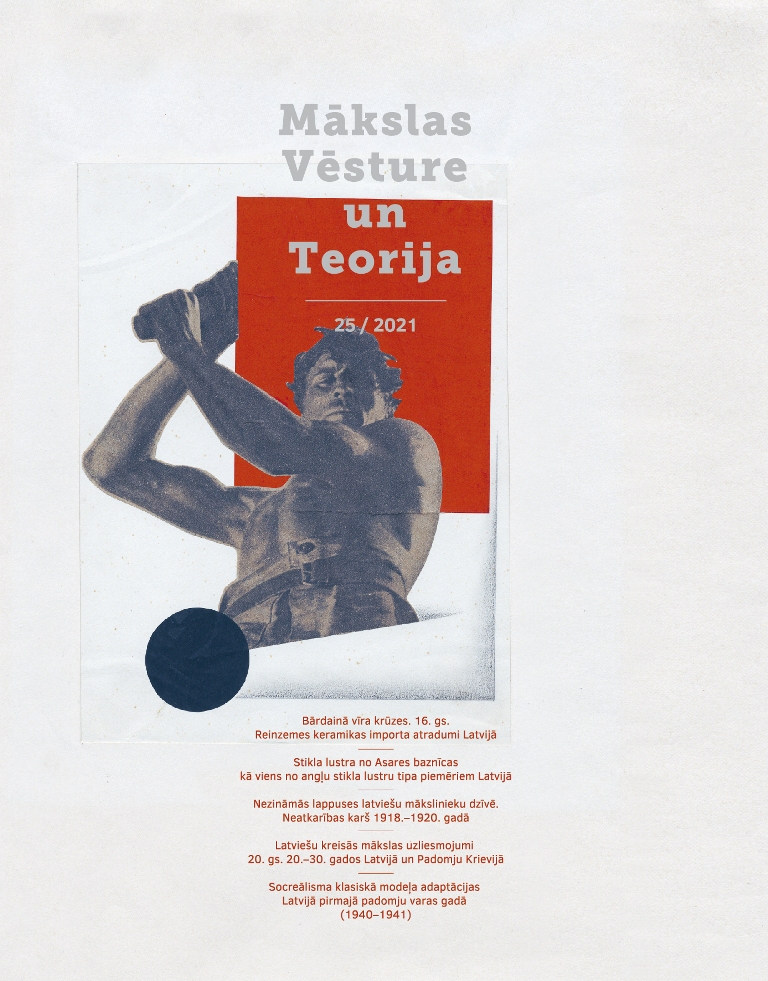
The article focuses on the short Soviet episode between the independence period and the subsequent German occupation, introducing Socialist Realism as a new paradigm for Latvian art theory and criticism. The doctrine had emerged in the USSR during the 1930s and was codified at the First Congress of Soviet Writers (1934) by Stalin’s propagandist Andrei Zhdanov in his famous speech. He proclaimed writers to be “engineers of human souls”. They were urged to represent reality in its “revolutionary development”, educate the working people in the spirit of socialism as well as to use the best achievements of all previous epochs for these purposes.Reflections of the regime’s officials as well as artists, art historians and critics on Socialist Realism appeared in Latvian periodicals by mid-1940. Thus art historian Alberts Prande (1893–1957) reiterated rebukes of formalism from the Soviet press, painter and critic Jēkabs Strazdiņš (1905–1958) extolled the “healthy realist trend” opposed to imitations of Western chaos and liberties; painter Augusts Dīriķis (1894–1941) called for rich ideas and technical skills instead of empty aestheticism, etc. Artists were pushed to depict the new life in “truthful”, content-based works with realist, easily understandable imagery. One of the most theoretical articles was published in the newly founded literature monthly Karogs by the renowned Russian-born art historian Boris Vipper (1888–1967) who came to Latvia in 1924 and returned to Moscow in 1941. He saw Socialist Realism in a quite Hegelian mode. The first phase of cultural evolution was deemed collective idealism, the second – individualism as its antithesis, while the third, present phase of Socialist Realism, described as collective materialism, was said to synthesise both previous extremes and eliminate their worst effects. In terms of form, this collective materialism blended Western traditions of representing spatial depth and chiaroscuro with decorative and rhythmical values, also reintegrating art with practical life and architecture. While this declaration was not really based on the doctrine’s actual sources, it allows us to spot original local modifications. Socialist Realism was popularised in articles praising Russian and Soviet art, for instance, on the Realist trend of the Peredvizhniki (Wanderers). Thus, applied artist and art critic Jūlijs Madernieks (1870–1955) described Ilya Repin as a great model for Latvian artists, modifying his earlier critical remarks about the 19th century Realism. Other Russian artists, such as Vasily Surikov, Aleksandr Deineka or Aleksandr Gerasimov, also featured in periodicals. More general surveys emerged too, mainly extolling the flourishing present in particular kinds of arts. They were authored by the leftist graphic artist Kārlis Bušs (1912–1987), art historian Jānis Dombrovskis (1885–1953), writer, painter and art critic Anšlavs Eglītis (1906–1993) (likely using the pseudonym I. Svarups), also painter and art critic Uga Skulme (1895–1963). Skulme had also sharply changed his opinion about Russian art, now claiming this nation of genius able to blend all foreign influences into a whole while in the inter-war period, he had deemed Russian art slavishly subservient to German Realism. Most of these surveys appeared soon after the occupation, likely aiming to quickly educate the public in the newly conquered territories. Some positive reviews on the USSR cultural scene even predated the occupation for example, in the magazine Atpūta whose editors had been involved with the Society for the Cultural Rapprochement with the USSR, functioning as a de facto recruiting agency for the future puppet government. A different tendency was to speculate on local precursors of Socialist Realism or at least some similar phenomena. Most of these pieces emerged in late 1940 and 1941, suggesting some time was needed in the attempt to inscribe the local heritage into the new paradigm. Self-evident models were members of the so-called Active Artists’ Group related to the inter-war Communist underground, practicing linocuts on social themes in a slightly modernised but rather naïvely realist manner. However, the scope of somewhat acceptable artists was much wider, encompassing the forefathers of Latvian national art, educated in late 19th century Russia and influenced by Realism, such as Ādams Alksnis (1864–1897) or Janis Rozentāls (1866–1916). Expressive draughtsman Teodors Ūders (1868–1915) probably received most attention. He was praised by Skulme, Dombrovskis and others as a simple and convincing interpreter of working people’s lives and thus a true precursor of Socialist Realism. Even artists influenced by modernism were interpreted accordingly; thus art historian Jānis Siliņš (1896–1991) appreciated stage designer and painter Oto Skulme (1889–1967), then the newly appointed rector of the Art Academy, as someone who had luckily abandoned abstract experiments in favour of realism, also being “honest” and “sincere” instead of practicing showy effects. Assessments of the artists’ latest output can be mostly found in reviews of the First Latvian SSR Art Exhibition, which opened in early 1941. For example, Madernieks largely continued his criticism of insufficient optimism, lack of precision in depicting faces, hands and the whole human body, that had been seen already in his articles from the late 1930s. Little was written about Western art during this period, an exception being the French Impressionist Claude Monet. He was described as a “revolutionary” of painting and a sensitive observer of nature in the article by art historian Kristaps Eliass (1886–1963) and painter Ģederts Eliass (1887–1975), who had co-authored a monograph on modern French painting published in 1940. The first Soviet year reveals both continuities and interruptions in regard to the previous period. On the one hand, authors still promoted the traditional neo-realist approach and critique of avant-garde extremes; on the other, they sometimes radically shifted their opinions in favour of Russian art. Most seemingly attempted to somehow “tame” the new doctrine, associating it with established artistic values; these, however, could be exonerated only after Stalin’s death (1953) that started the modernisation and actual disintegration of Socialist Realism.
More...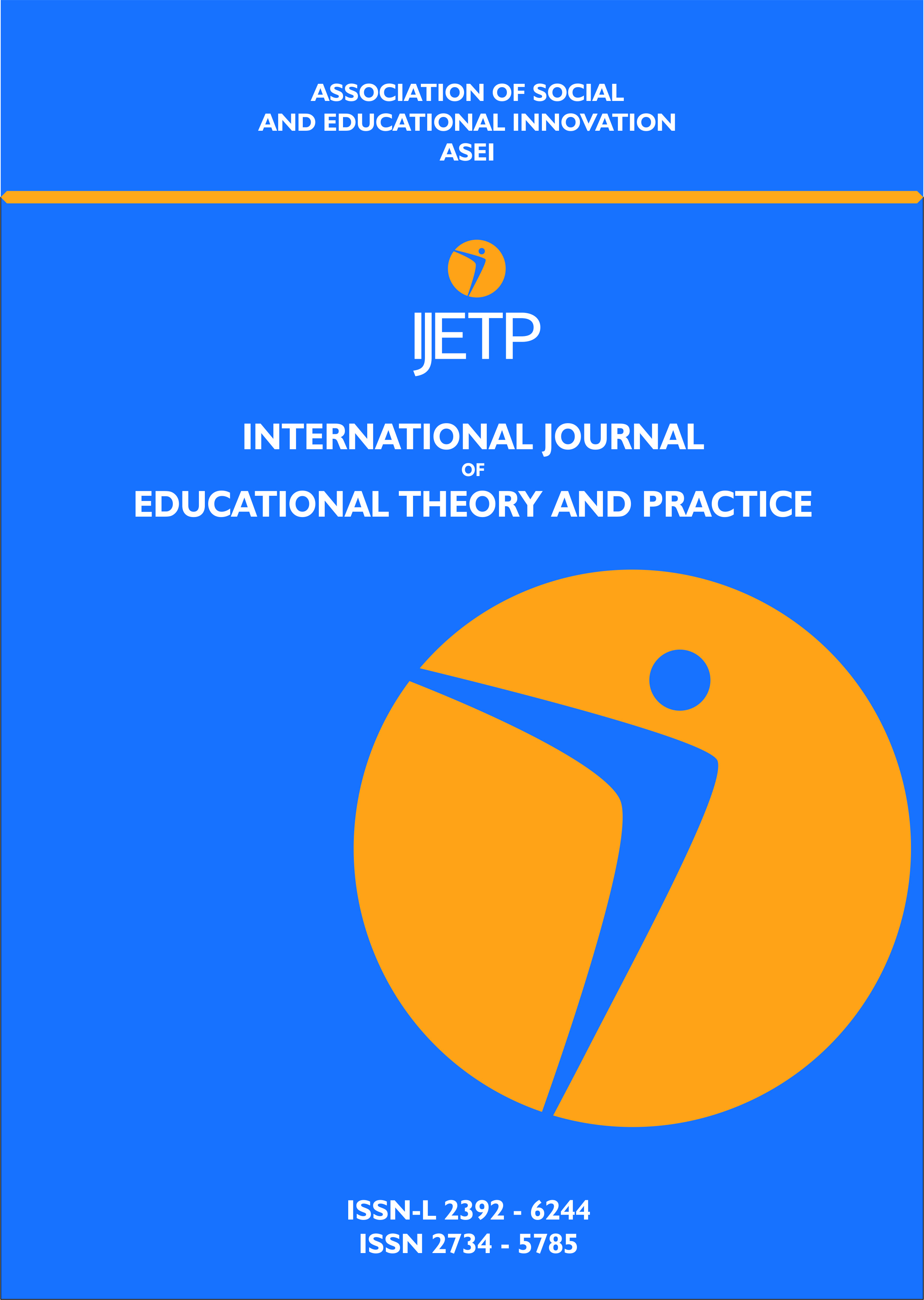
The issue brought into discussion allows, in our opinion, increasing the quality of educational services, reducing early school leaving by children at educational risk, opportunities for the participation of teachers and members of management teams, in continuing education programs, development of teaching and professional skills, activities such as teacher mentoring and exchanging of good practices. In other words, our approach is about how teachers can optimize their teaching activity, so as to reduce school dropout and cause students to be permanently prepared through lifelong learning.
More...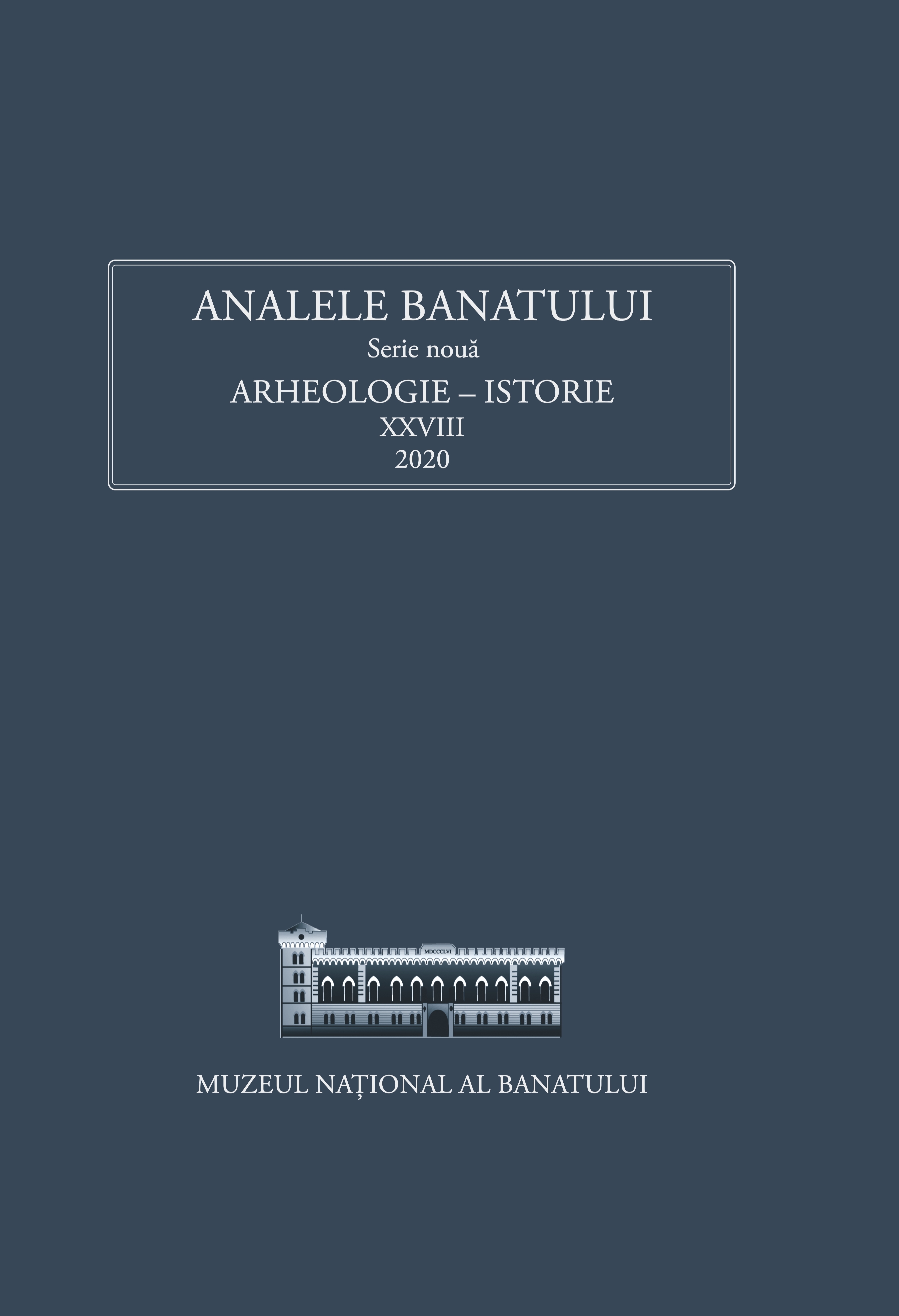
Mindszenthy Antal (1786-1859?) was a Hungarian erudite who travelled across Europe and Hungary, leaving behind a diary about his trip across the Hungarian Plane. The first part of his descriptions was published in 1831 and 1832, but due to the censorship of the period, the second part of his manuscript, the description of his trip from Titel to Pest, was not allowed to be printed. The diary of Mindszenthy is kept in the Széchenyi National Library from Budapest, Hungary and was entirely published recently by the Katona József Museum from Kecskemét. Due to the fact that the travel route included regions of Banat that are to be found today within the borders of Romania, one of the stops being the center of the region, namely Timișoara, we thought it would be of great interest to publish the description of the city, both in Hungarian language and translated into Romanian. Timișoara has underwent several reconstructions through the centuries (and it witnessed three major sieges in 1551/1552, 1718 and 1849), consequently the major part of it’s architectural heritage dates from the end of the 19th century, but especialy from the beginning of the following century. Such narrations from eye whitnesses are very scarce in the first part of the 19th century, a period when illustrations are as well extremely rare. A local priest, Nicolae Stoica de Hațeg has written his chronicle about the region of Banat a few years after Mindszenthy, between 1825-1827. Apparently for both of them the work of Francesco Griselini stood as a modell. The original text has been adnoted with comments and interpretations of the authors in order to establish the veridicity of the descriptions and to provide further information regarding the subject of the account. Since the diary did not included any illustration, for a better understanding we completed it with several images representing either the city plan or buildings, mainly dating from the 19th century or earlier, trying to illustrate the descriptions as faithfully as possible.The text also offered the authors the opportunity to discuss about some historical relics it refers to: an ottoman inscription that was inaccurately translated until now, the Horros Kapi (Rooster or later Forforosa Gate) of the Ottoman fortification of Timișoara and a presumably medieval flag kept in the artillery warehouse.
More...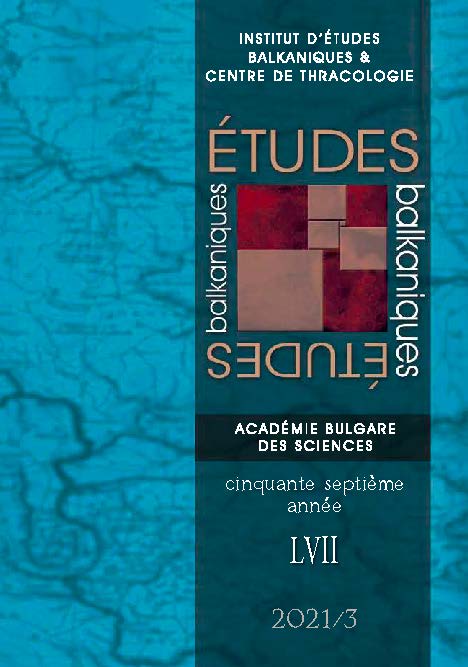
International order is one of the key concepts of international relations of the 19th and 20th centuries following the wars and the shifting of major paradigms. When the Cold War ended it became more relevant for the Balkans since the balance of power was no longer the most suitable model for regional peace, following the dangerous ethnic tensions, and new realities. The paper intents to explain the main values and characteristics of the contemporary international order, specifically since the collapse of the balance of power; and to analyze what this means for the Balkans, both in terms of international involvement in the Balkans, and the positioning of Balkan states in the system of international relations? The study identifies the main patterns that shape contemporary international order, noting the increased impact of globalization, and shifting of the models of international order towards the stability, geopolitical relevance, and development of the Balkans.
More...
The paper deals with two graffiti drawing in the south gallery in the former Christian church Hagia Sophia converted after 1453 into mosque Ayasofya. In view of the posture, clothing and headgear of the figure, most likely the author of the first drawing intended to present a whirling dervish. The attempt to date non-epigraphic graffiti with any degree of accuracy is often extremely difficult, but a terminus post quem of this graffito drawing can be the 15th century suggested on the basis of the established clothing standard for all members of the Mevlevi Order. The second drawing presents three weapons defined as “saber” and most likely they correspond to the well-known types of sabers in the Near East Zulfikar, kilij and Shamshir. The hypothetical time span for creating the drawing with the three sabers is between the 17th and the end of the 18th century.
More...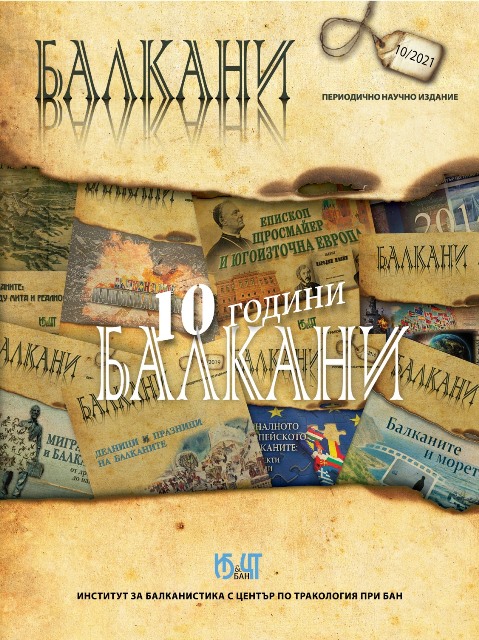
The paper outlines the path of research on the Thracian Antiquity from the first studies in the first half of the 18th century until Thracology became an autonomous academic domain. The most important publications and academic forums illustrating its emergence from the shadow of Ancient Greece and Rome are indicated, as well as the most important achievements in the research on the ancient Thracian lands in the context of Southeastern Europe and the new perspectives that would lead to reinterpretation not only of finds and sites, but also of the overall socio-economic life, foreign policy and economic relations. The political history of the Thracian kingdoms is usually examined from the viewpoint of military and political clashes. The stereotype of opposing Greeks and Thracians was gradually surmounted, which led to the elaboration of the expressed idea on the ancient Thracian lands as contact zone of economic, cultural and trade interactions.
More...
This article is taking account of the different historiographical clusters or frameworks in which the 1821 Greek Revolution has (or not) found its place. The clusters identified reflect the ways in which Greek history and by extension the Greek Revolution, itself a function of the overall reception of Greek history, are globalized. They show their prevalence in some rubrics and relative absence in others, depending on the epoch. Among the rubrics, foremost is the question whether, when and by whom the events of 1821 were represented as a revolution and why some historiographical traditions withhold this characterization. Other clusters, analyzed comparatively and in the context of modernity, are nationalism studies, international relations, especially the Eastern Question, the issue of violence, as well as women studies. Finally, addressed is the issue why the Greek Revolution, without doubt global in its imagination, connections and ramifications, is sorely missing from the big narratives of world history.
More...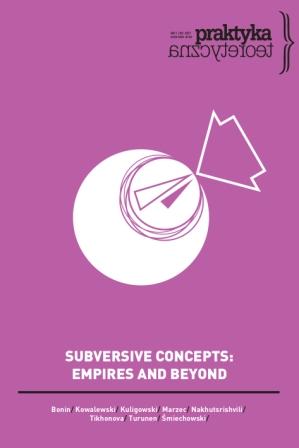
The article scrutinises the concept of socialism at the grassroots of the Finnish labour movement during the early twentieth history. Primary sources consist of three handwritten newspapers, produced by industrial workers, housemaids and the rural proletariat. While factory workers could adopt the orthodox formulation of socialism from The Communist Manifesto, the socialism of the housemaids had a more existential function for it gave them a political voice to articulate a greater meaning in life that stood in sharp contrast to the silent servility demanded by their mistresses. The concept of socialism gained most explanatory breadth among the rural proletariat in north-eastern Finland, where it was used as an indicator of inequality locally, as a weapon in national elections and as a direct linkage to the international labour movement. The examples demonstrate that vernacular socialism was more multidimensional than what the contemporary critics and later researchers have suggested. The concept of socialism was one of the main tools in the making of proletarian modernity: it was used to claim political subjectivity in the public sphere, to imagine a gap between the old world left behind and the new coming world, and to extend their spatial horizons beyond the local community.
More...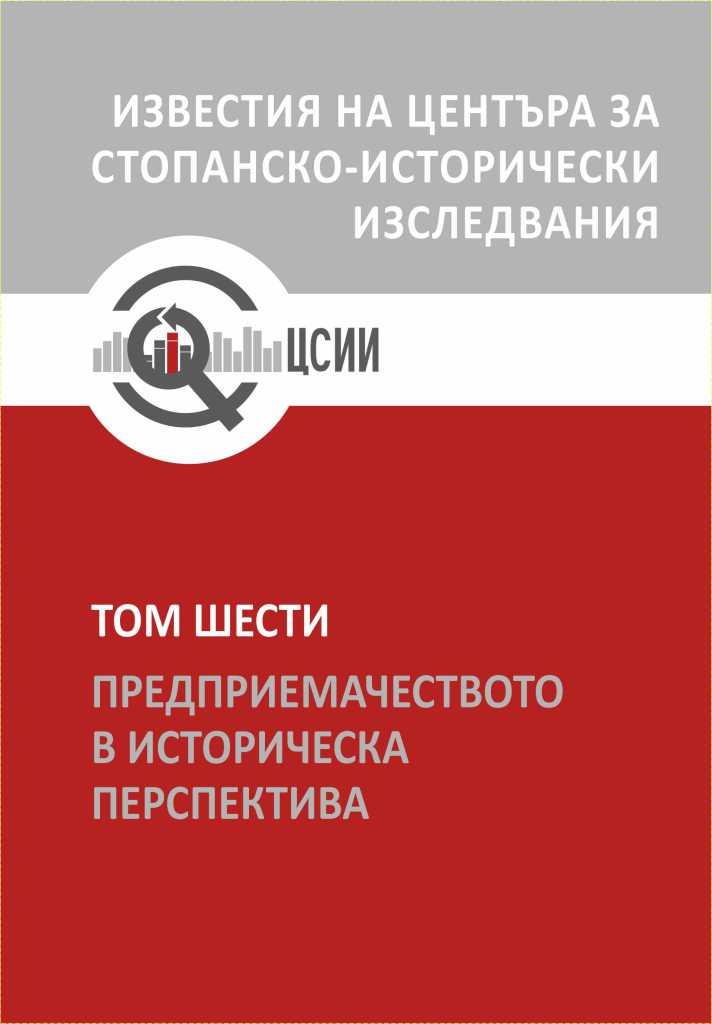
There are hidden but well-known to the public hierarchies that are more stable than the official ones, namely the clientelism / patronage. The aim of the report is to analyze the patronage in the Bulgarian society in the 19th and 20th centuries. This is one of the most stable social structures the patronage / clientelism, which is reorganized under the various political and economic systems. It means non-reciprocal debt, owing not only money and services, but also honor and dignity. This form of dependence has existed since ancient times in every society. In the modern world, as in the past, patronage redistributes resources, which is done in hierarchies of clientelistic networks. Patronage is an individual and social way of surviving in uncertain times, it lacks dignity and unnecessary honor. The report does not examine who is the client and the patron, but the phenomenon, the existing relationship between them, so they are called by both names – patronage and clientele. These structures develop complex networks of non-reciprocal exchange of services and bad debts that are difficult to explore with standard scientific approaches. For the needs of the research a complex interdisciplinary approach from different fields of science is used - economics, anthropology, history, sociology, etc., as well as comparative and historical analysis. Although these hierarchical structures are characterized by many errors, in the modern information world they are still the most used.
More...
The main goal of this study is to present the initiation and the development of the Society of academic economists in Bulgaria. The text analyzes the main historical facts related to the conditions and motives for its creation. It also presents the goals and tasks, as well as the structure, management and financing of the organization. The emergence of the Society was part of the general flow of events that take place both nationally and internationally after the end of the World War I. The country was amongst the defeated nations in World War I. It lost territories, its production was destroyed and finances were shattered.The Society of academic economists, was founded on June 1, 1926. It was situated in Sofia. Very soon the society expanded and branches were established in Gabrovo, Ruse, Varna, Burgas, Yambol and Sevlievo. The founders – 88 people altogether, were part of the academic staff of the Free University of Political and Economic Science. Some of the leading figures of the society were Andrey Lyapchev, prof. Petko Stoyanov, prof. Dimitar Dobrev, Konstantin Bobchev, etc. They all have completed their university education abroad. They were figures with great professional skills and an entrepreneurial spirit. The Society of academic economists played an important role in promoting knowledge of economics. In the first year of its setting up the organization managed to attract supporters from all over the country and gained wide public popularity and support. The Society of academic economists also published one of the most prestigious periodicals in economics in Bulgaria — the journal Economic thought. Editor-in-Chief of the journal was prof. P. Stoyanov and two were the contributing editors – P. Leshtov, PhD and Y. Petkov, PhD. The journal became an ambience for professional discussions and exchange of ideas.
More...
As construction proves the most indicative economic marker, the correlation between architecture and economics outlines the overall political and economic context as the major factors that determined the architectural outlook of Veliko Turnovo and reveals symptomatic facts about the professional activities of the architects who worked there during the period of the Third Bulgarian State (1878-1944). The entrepreneurial activities of the Bulgarian architects, who constituted the modern townscape of Veliko Turnovo, are analyzed within the political, economic and legislative context in order to reveal concrete professional careers’ details. Comparison with the undertakings of the architects, born in Veliko Turnovo and the region, who migrated to other towns, serves as a base for summarizing major tendencies in the architectural profession in the period.
More...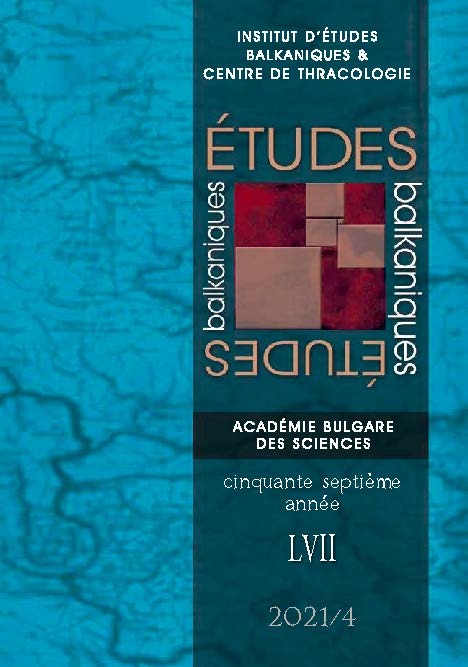
This article is taking account of the different historiographical frameworks in which the 1821 Greek Revolution has (or not) found its place. The clusters identified reflect the ways in which Greek history and by extension the Greek Revolution, itself a function of the overall reception of Greek history, are globalized. They show their prevalence in some rubrics and relative absence in others, depending on the epoch. Among the rubrics, foremost is the question whether, when and by whom the events of 1821 were represented as a revolution and why some historiographical traditions withhold this characterization. Other clusters, analyzed comparatively and in the context of modernity, are nationalism studies, international relations, especially the Eastern Question, the issue of violence, as well as women studies. Finally, addressed is the issue why the Greek Revolution, without doubt global in its imagination, connections and ramifications, is sorely missing from the big narratives of world history.
More...